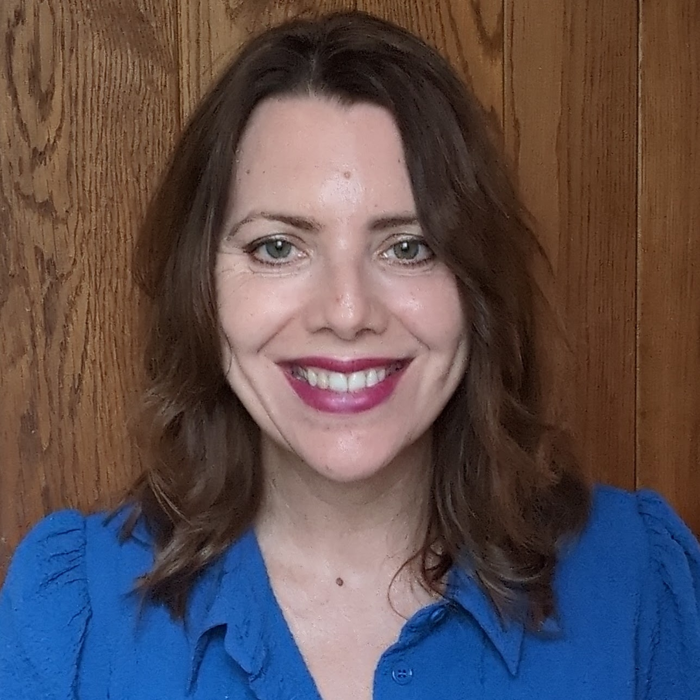Towards an Evidence Based Pedagogy Framework
Thursday 1st June 2023, 5:00 PM - 7:00 PM (London Time)
Since the induction of the term “Evidence-Based Voice Pedagogy (EBVP)”[1] some voice professionals have erroneously inferred that the term is synonymous with science-based, pedagogy, function-based, or fact-based voice pedagogy.
There is a precedent for defining Evidence-Based Voice Pedagogy with a broader understanding since its origins are found in the field of medicine. In the early 1990’s, Evidence-Based Medicine (EBM) came to be defined as the integration of individual clinical expertise with the best available external clinical evidence.[2] In 2018, the Journal of Singing published an article by Kari Ragan outlining for the first time a framework for EBVP that includes three essential components: 1) Voice Research, 2) Voice Teacher Expertise and Experience, and 3) Student Goals and Perspectives.
Modeled after EBM, the EBVP framework provides a context for an inclusive perspective of what constitutes evidence in the field of voice training.
The gold standard for any voice teacher is to achieve efficacy in the form of vocally efficient and artistic performances. Tools necessary to be an effective teacher are acquired through a broad continuum of resources. EBVP is further defined “as the integration of voice teacher expertise and experience, student goals and perspectives, and relevant research into voice science and production to effectively evaluate and identify technical inefficiencies to guide students toward vocally healthy and efficient, stylistically accurate, and artistic performances.”[3]
EBVP is a framework that acknowledges the importance of both scientific and anecdotal evidence, along with consideration of the experience acquired by a teacher, and the importance of individual student needs. This framework was further explored in collaboration with colleagues Lynn Maxfield,[4] Ken Bozeman[5] and Lynn Helding. [6] This workshop presents the tripartite framework as an approach to voice teaching.
[1] Kari Ragan, “Defining Evidence-Based Voice Pedagogy (EBVP): A New Framework, Journal of Singing 75, no. 2 (November/December 2018): 157-160.
[2] David L. Sackett, William M. C. Rosenberg, J.A. Muir Gray, R. Brian Haynes, and W. Scott Richardson, “Evidence-based medicine: What it is and What it Isn’t, “British Medical Journal Publishing Group 312. 7023 (January 13, 1996): 71-72
[3] Kari Ragan, “Defining Evidence-Based Voice Pedagogy (EBVP): A New Framework, Journal of Singing 75, no. 2 (November/December 2018): 157-160.
[4] Lynn Maxfield and Kari Ragan, “Evidence-Based Voice Pedagogy (EBVP), Part 1 Voice Research Component,” Journal of Singing 77, no. 4 (March/April 2021): 543-547.
[5] Ken Bozeman and Kari Ragan, “Evidence-Based Voice Pedagogy (EBVP), Part 2: Voice Teacher Expertise and Experience,” Journal of Singing 78 no. 3 (January/February 2022): 389-393.
[6] Lynn Helding and Kari Ragan, “Evidence-Based Voice Pedagogy (EBVP): Part 3 Student Goals and Perspectives, Journal of Singing 78, no. 5 (May/June 2022): 635-640.
Dr Kari Ragan
Singer, author, and voice pedagogue Kari Ragan holds degrees from the University of Washington (DMA) and Indiana University (MM, BM). She was the recipient of the prestigious Van L. Lawrence Award (2012), the NATS Foundation Pedagogy Award (2009), and the Wicklund Singing Voice Specialist Certificate (2010), and she was selected as a Master Teacher for the NATS Intern Program in 2021.

Attend this course for as little as £22 as part of the Voice Professional Training CPD Award Scheme.
Learn MoreSorry, this is an archived short course...
We have plenty of upcoming short courses coming soon. See details of some of them below or look at the full list of short courses.

Tuesday 13th January 2026
5:00 PM - 6:30 PM
Tuesday 20th January 2026
5:00 PM - 6:30 PM
Tuesday 27th January 2026
5:00 PM - 6:30 PM
Tuesday 3rd February 2026
5:00 PM - 6:30 PM
Tuesday 10th February 2026
5:00 PM - 6:30 PM
(London Time)
Introduction to Postgraduate Academic Skills - Join Live!

Debbie Winter
Are you ready to elevate your academic journey? Hosted by our very own Debbie Winter, join our comprehensive Introduction to Academic Skills course, designed to equip you with essential tools and strategies for success in higher education. Perfect for bridging the gap between undergraduate and postgraduate study, this course offers a pathway to our full MA for students without an existing degree. We offer both live, interactive sessions and standalone, pre-recorded content.

Thursday 15th January 2026
5:00 PM - 7:00 PM
Thursday 22nd January 2026
5:00 PM - 7:00 PM
Thursday 29th January 2026
5:00 PM - 7:00 PM
Thursday 5th February 2026
5:00 PM - 7:00 PM
Thursday 12th February 2026
5:00 PM - 7:00 PM
(London Time)
Trauma-Sensitive Voice Professional Certificate with Dr Elisa Monti

Dr Elisa Monti
Updated for 2026, this five-part certificate course is designed to help participants learn the theory and practice of trauma-sensitive approaches. The concepts and activities included are tailored to meet the needs of voice specialists who want to acquire more specific tools to navigate the space with their students and colleagues.

Monday 9th February 2026
5:00 PM - 7:00 PM
(London Time)
Certificate in Applied Voice Pedagogy with Adam Roberts

Adam Roberts
Spring Immersive - live and interactive learning! This 12-week online programme is designed for voice professionals committed to deepening applied voice pedagogy skills and advancing professional practice. The course offers a rich environment to reflect on your teaching philosophy and develop applied pedagogical techniques. It is ideal for voice teachers, coaches, therapists, and performers seeking to bridge foundational knowledge with practical, student-centered applications.
